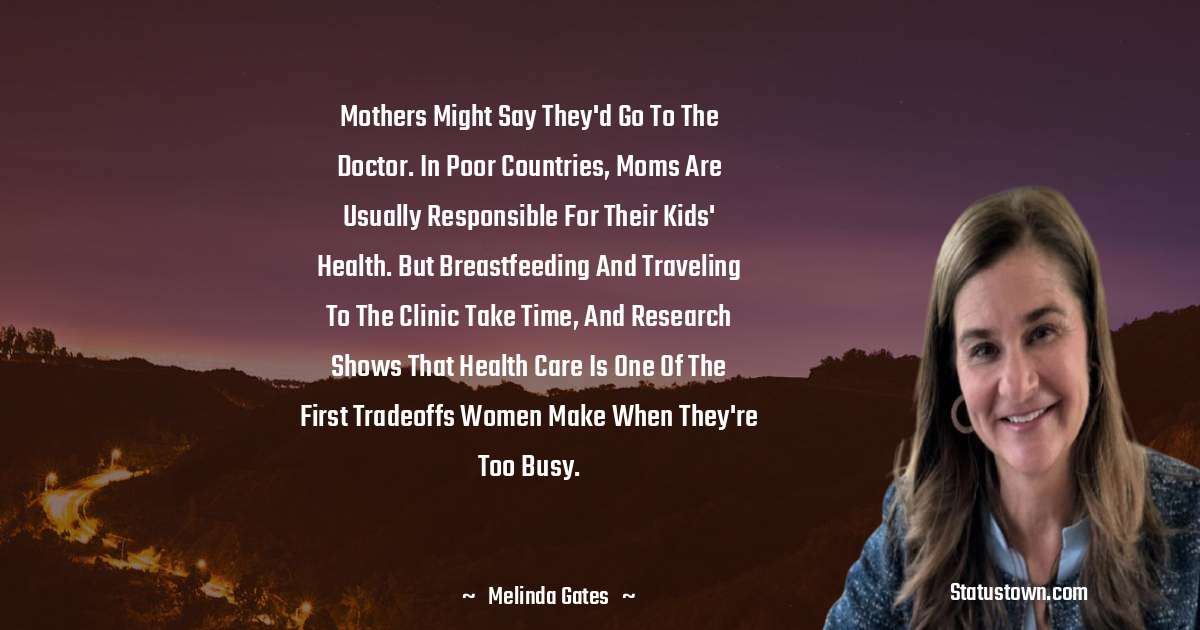Melinda Gates Quotes, Status, and Thoughts
[ampenglishquotesdata start="0" limit="6"]
It's really one of my all-time favorite things to do. To go out and really see the kids and visit the moms who are in these programs because I think I really get to see what happens on the ground and connect with them about what changes are that happen in their lives because of some of the giving that we're able to do.
Think, for a moment, about our educational ladder. We've strengthened the steps lifting students from elementary school to junior high, and those from junior high to high school. But, that critical step taking students from high school into adulthood is badly broken. And it can no longer support the weight it must bear.


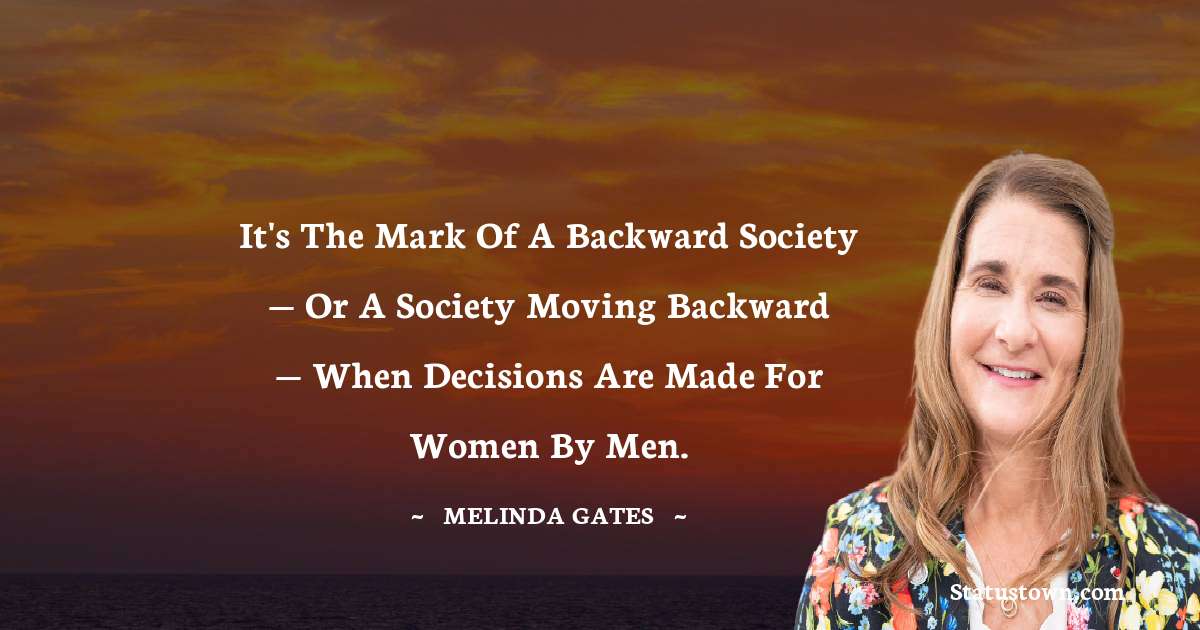

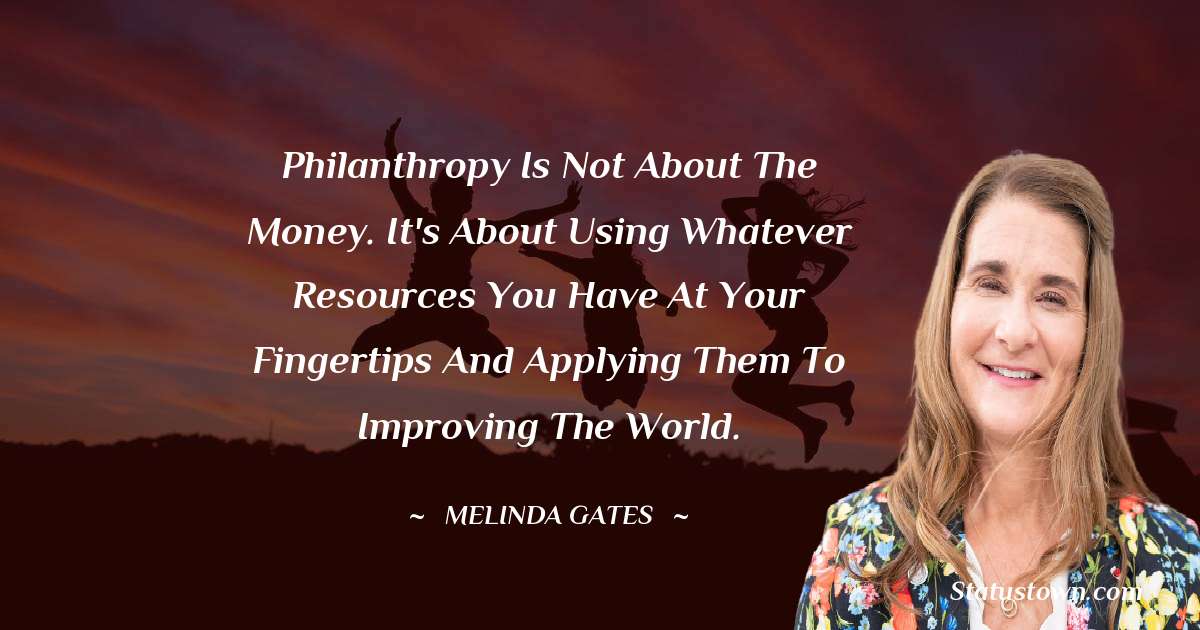


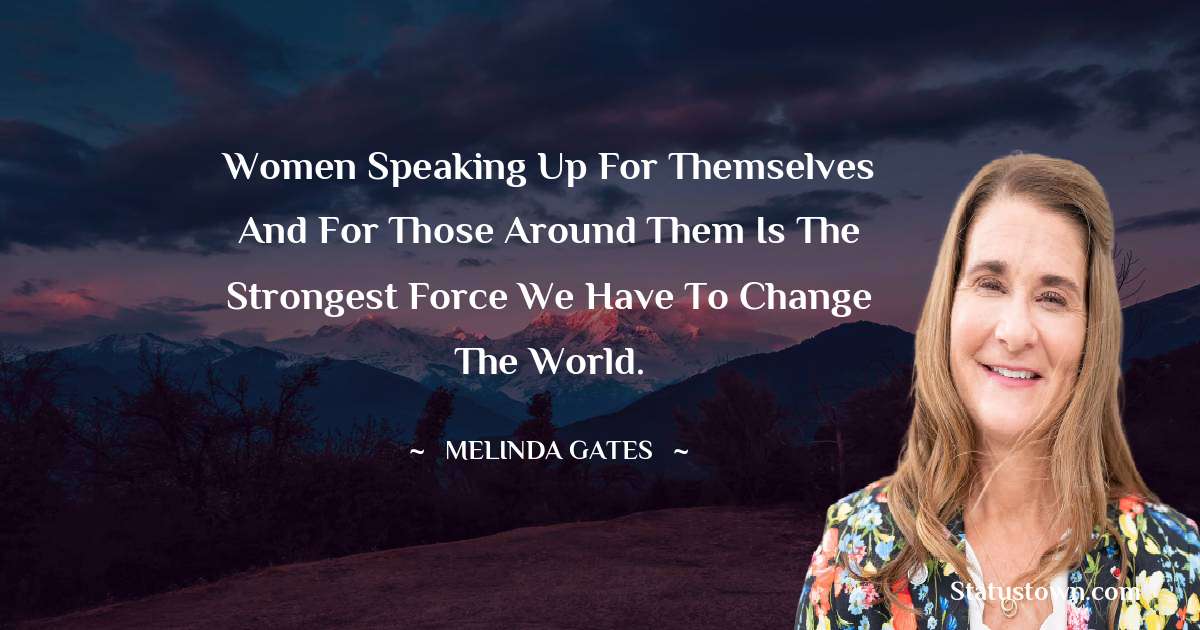





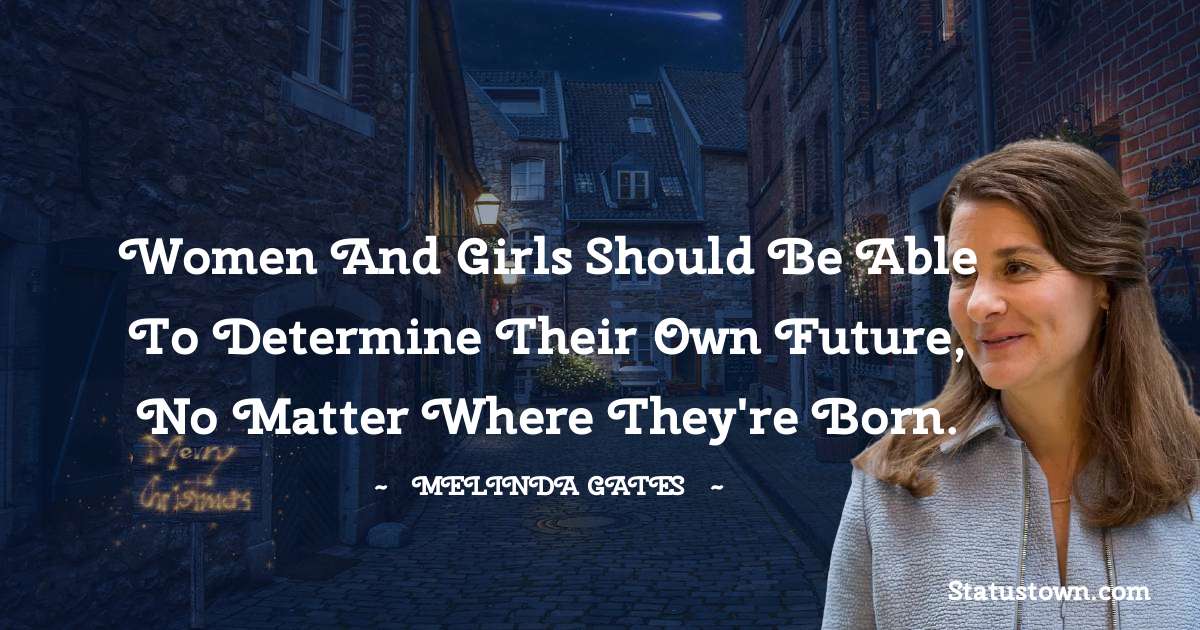

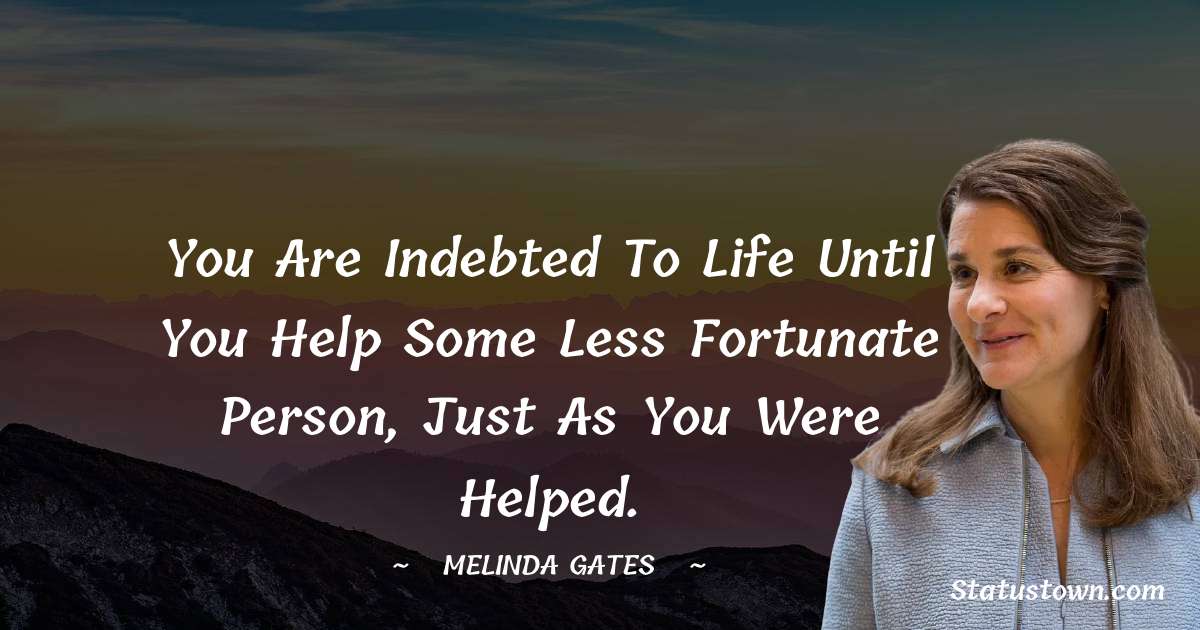
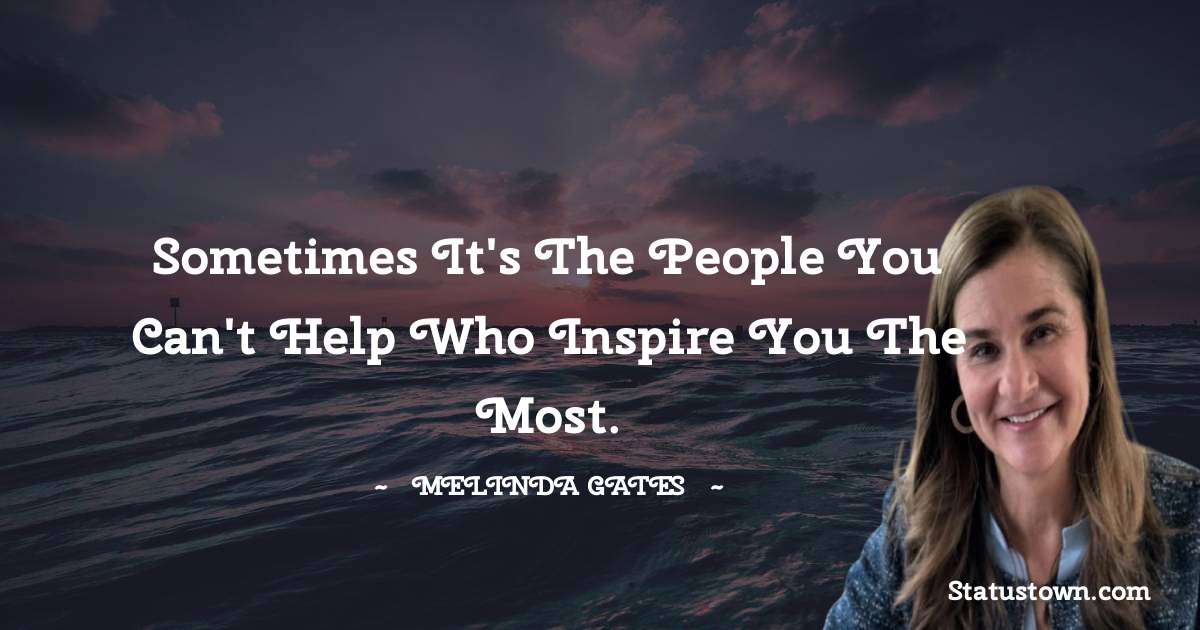

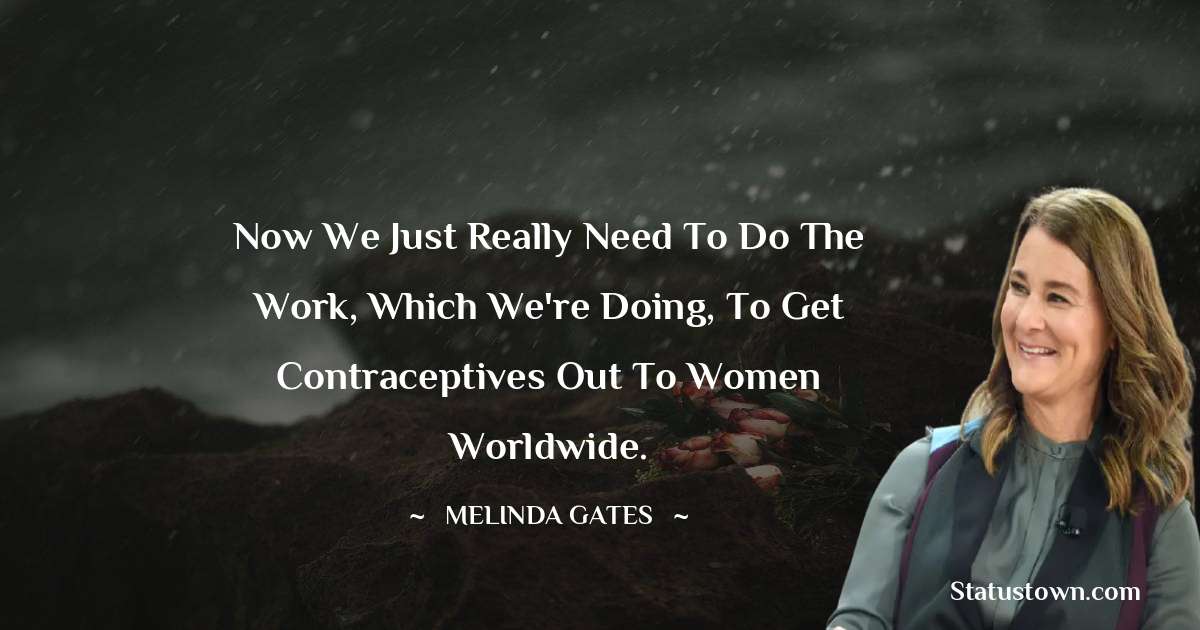

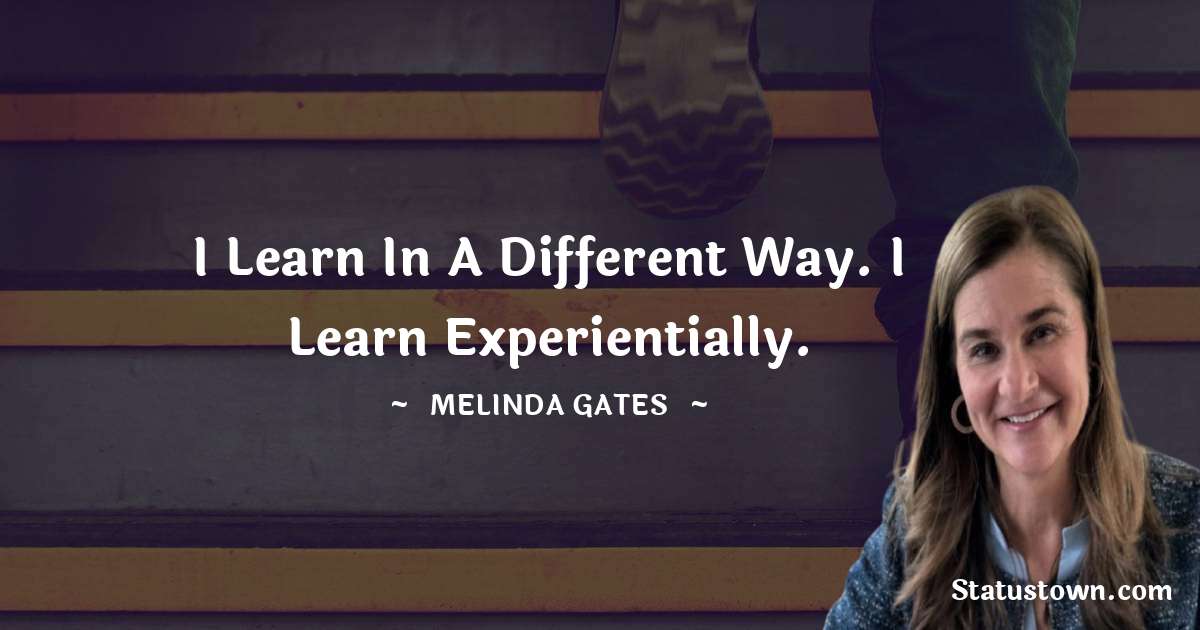
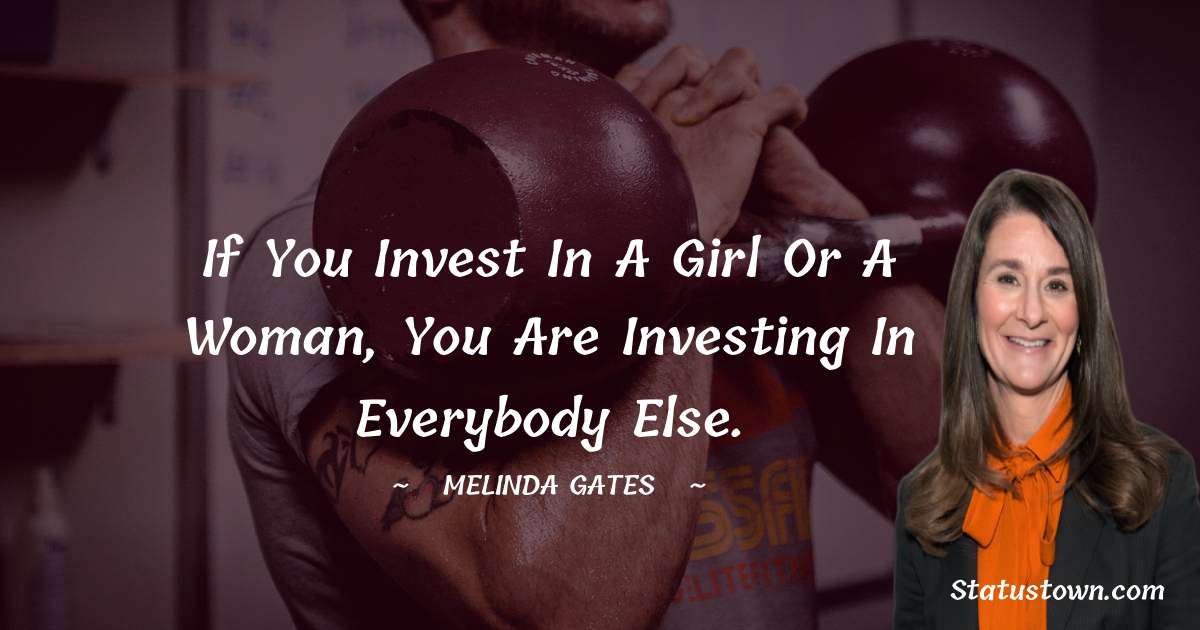


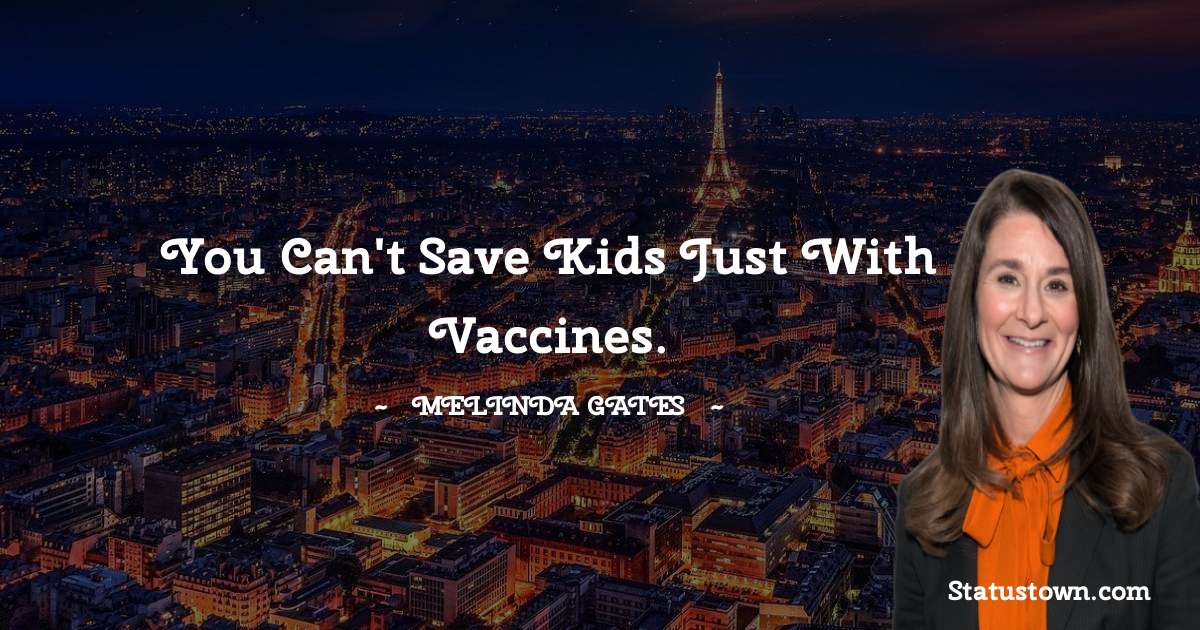
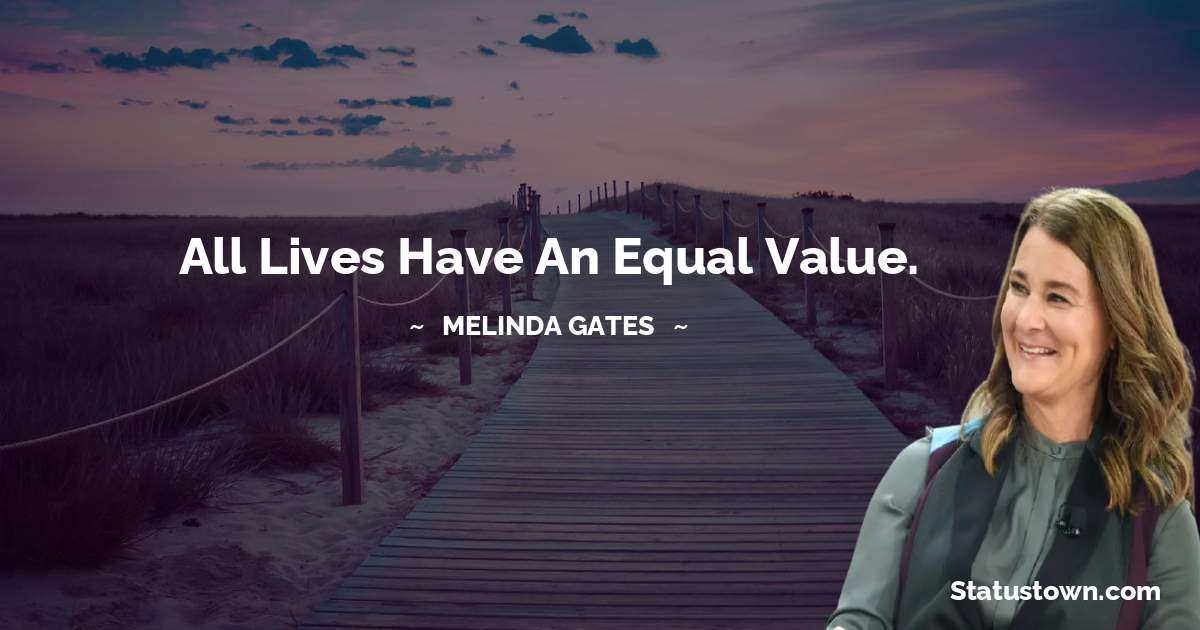
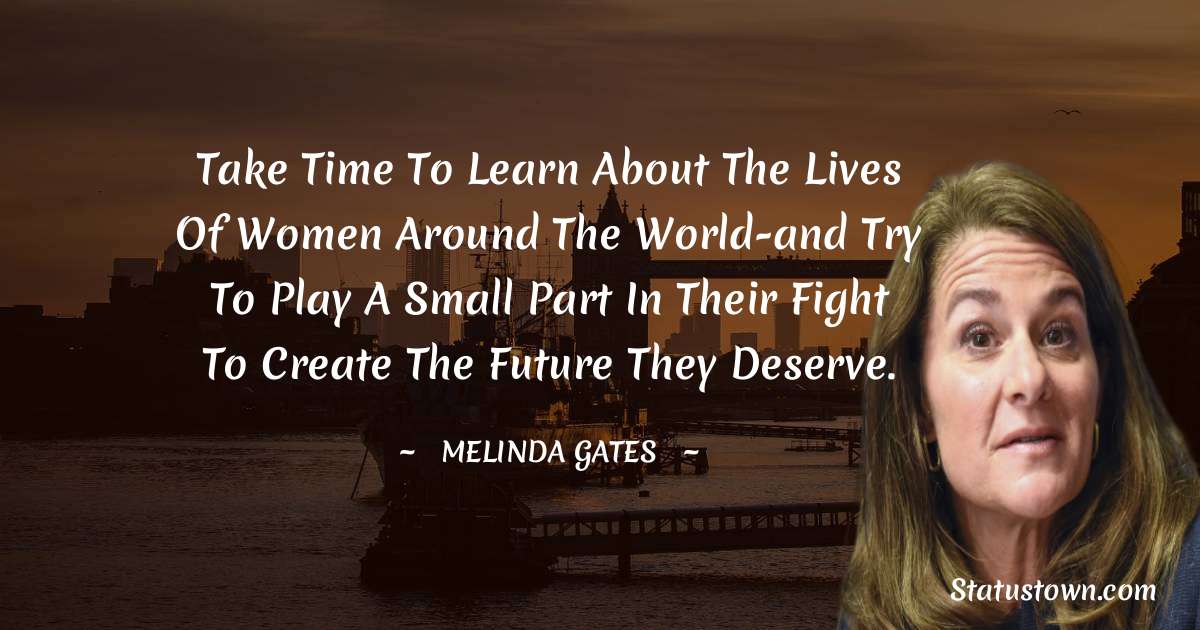
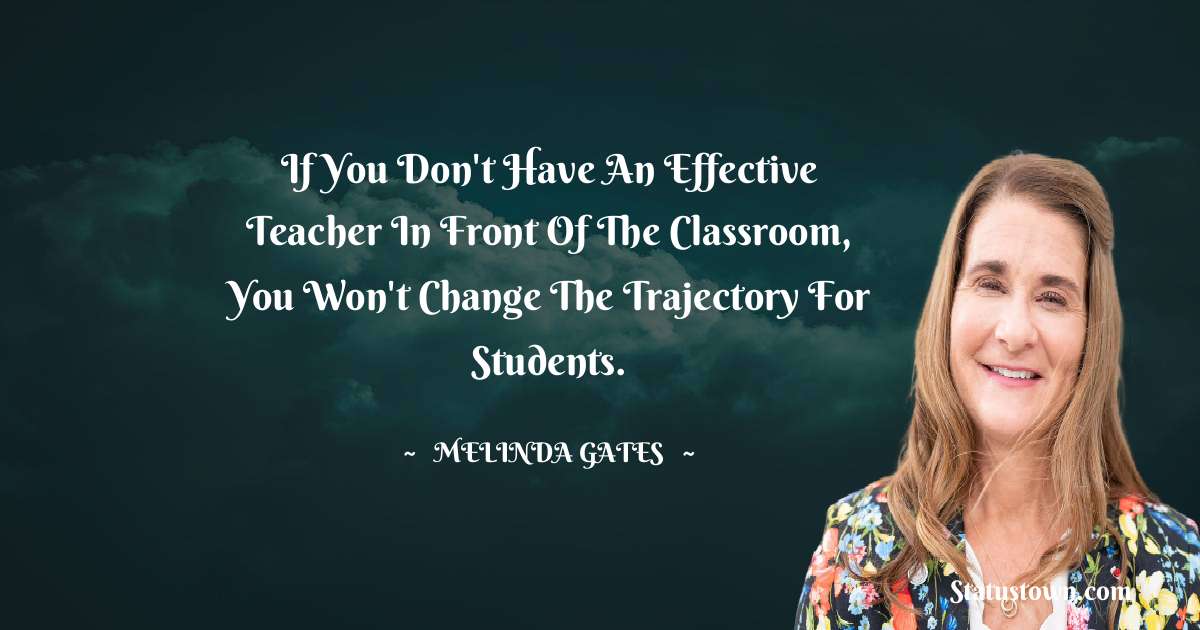

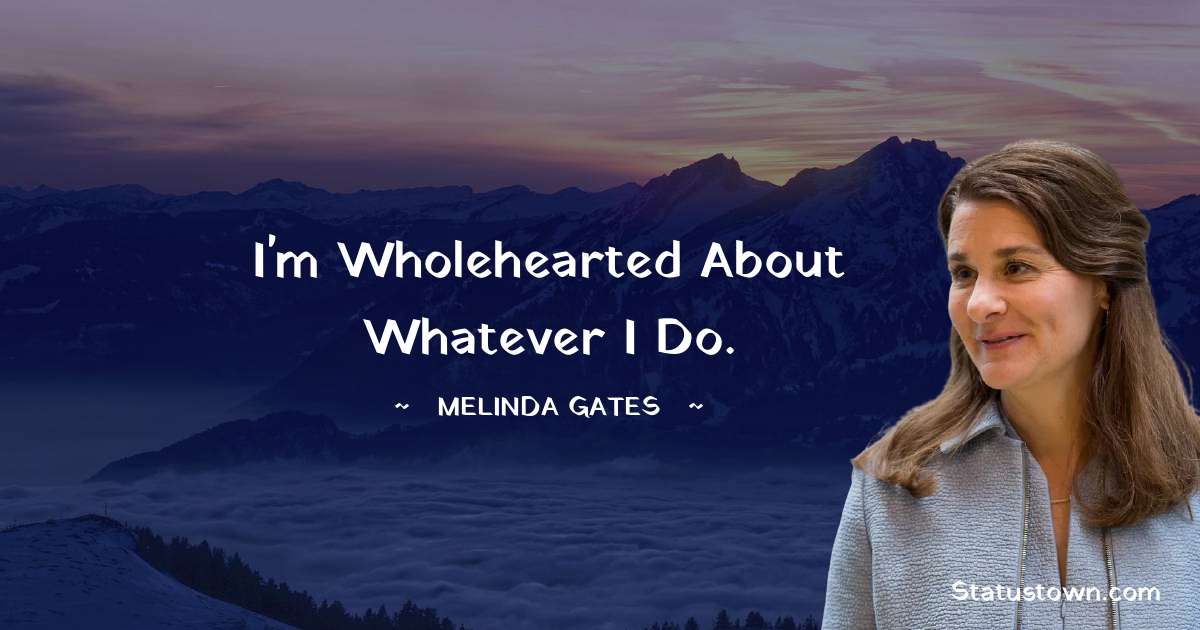
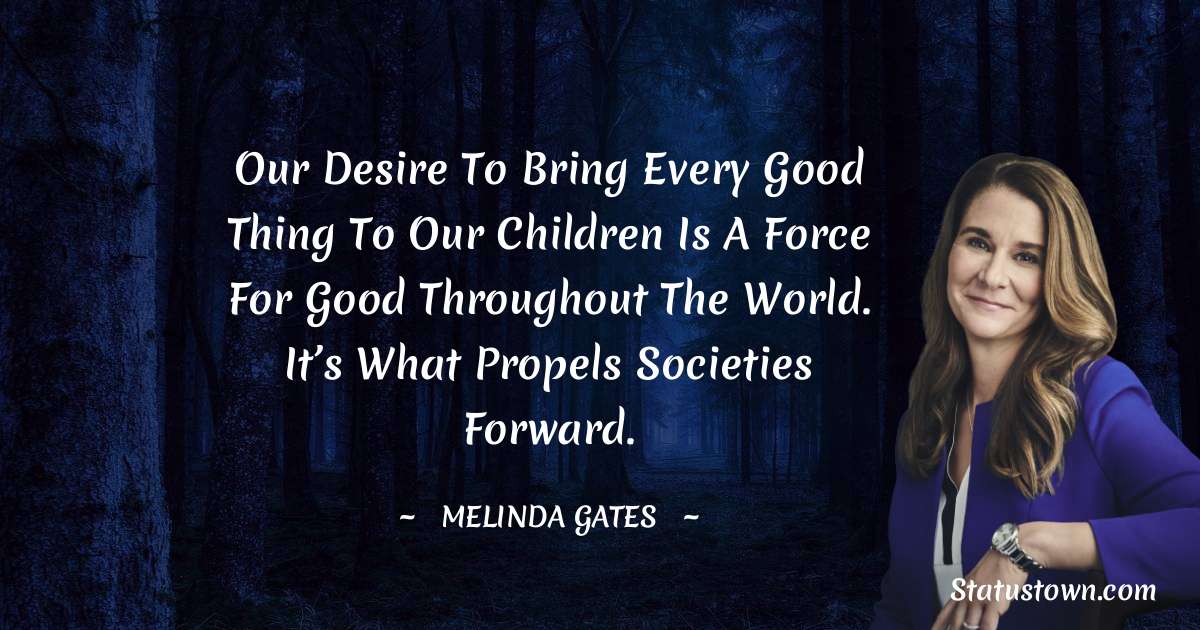
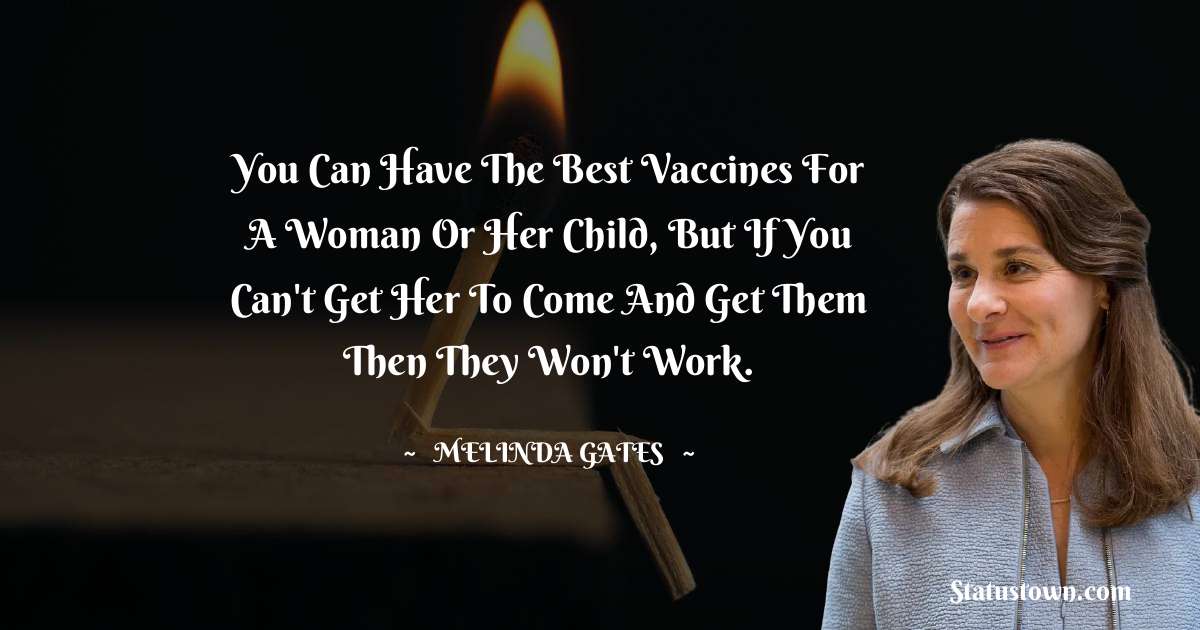
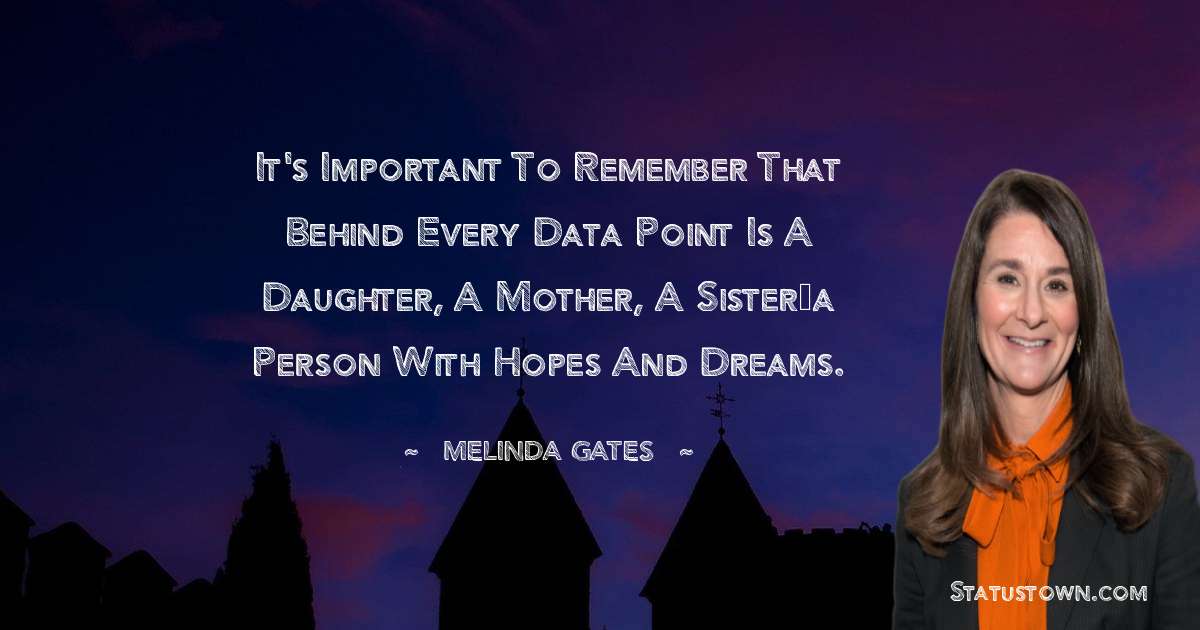





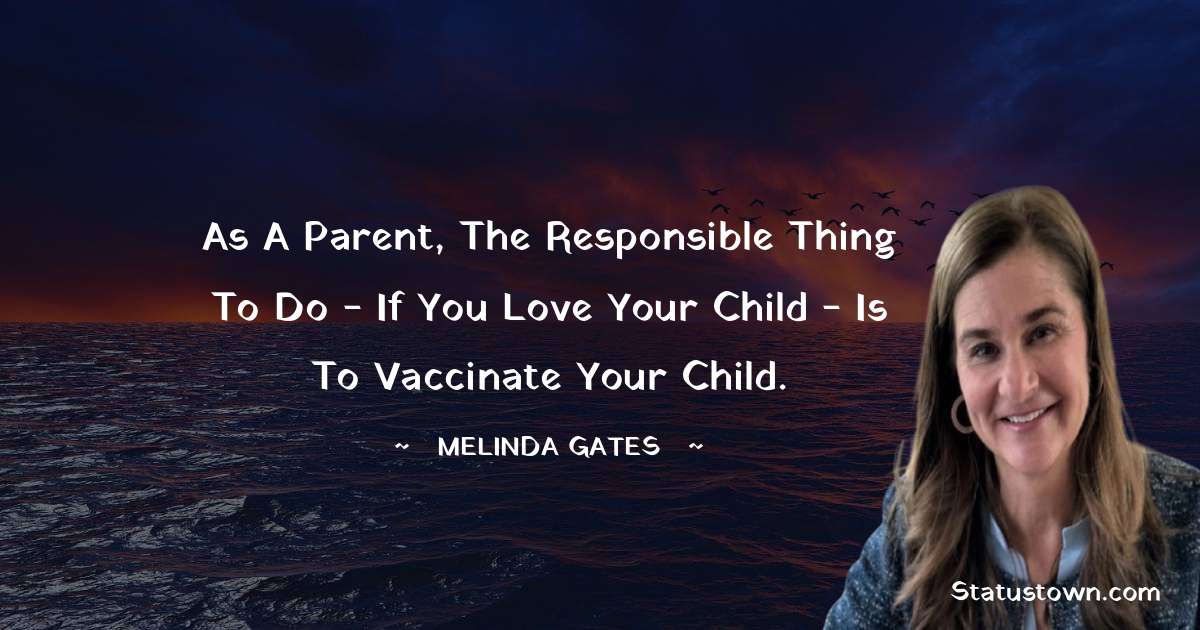


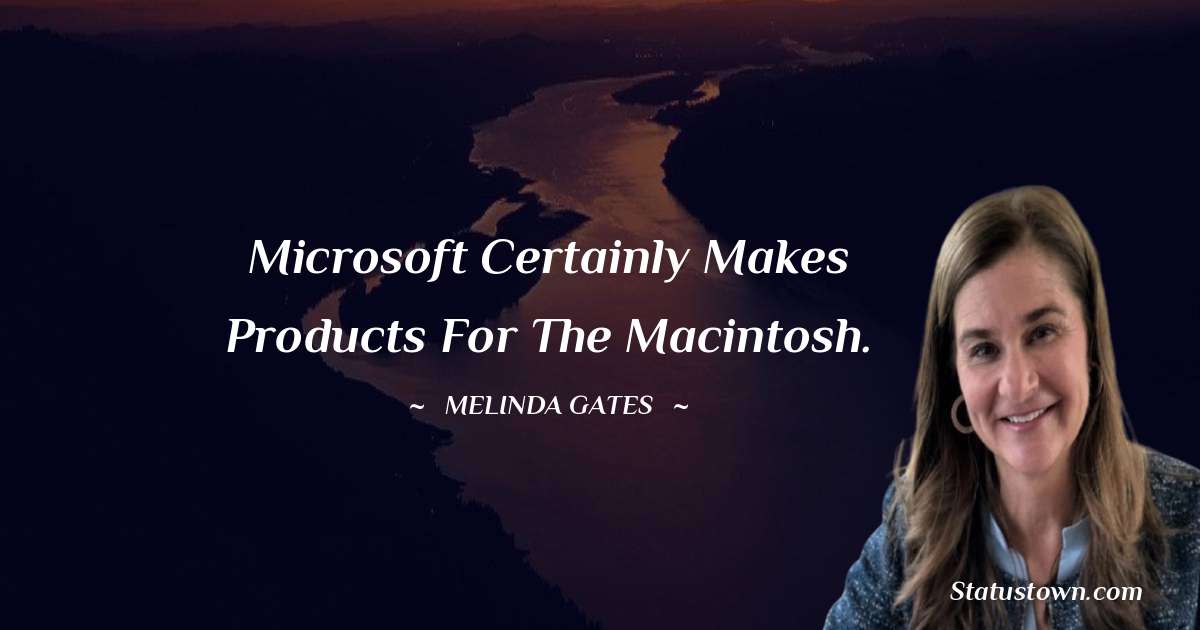

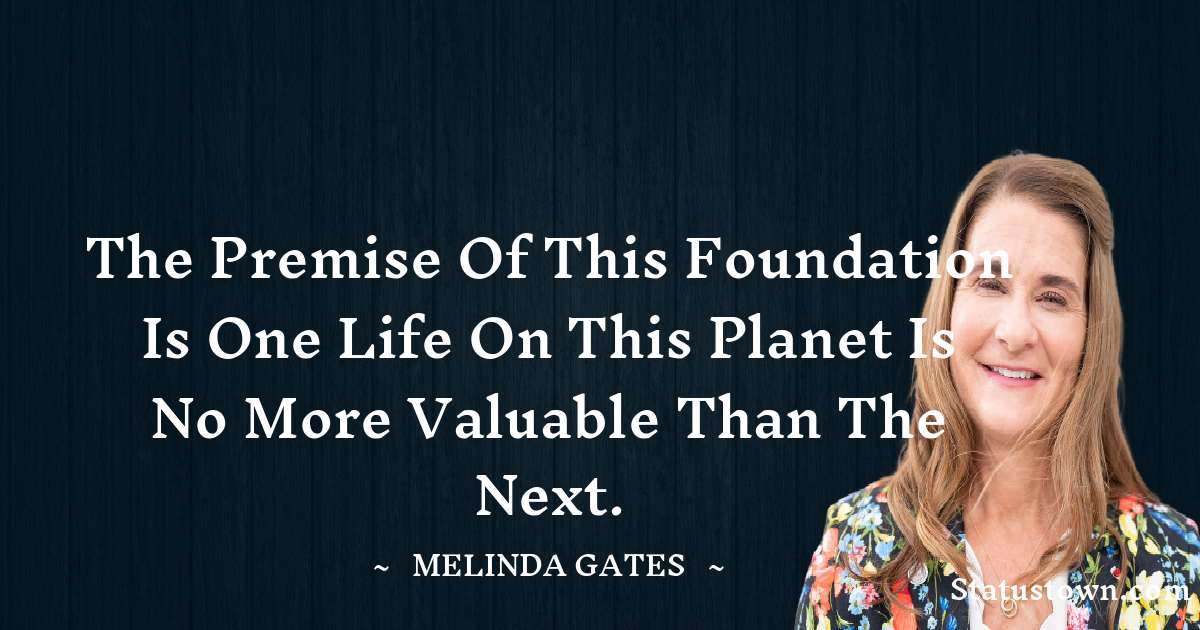
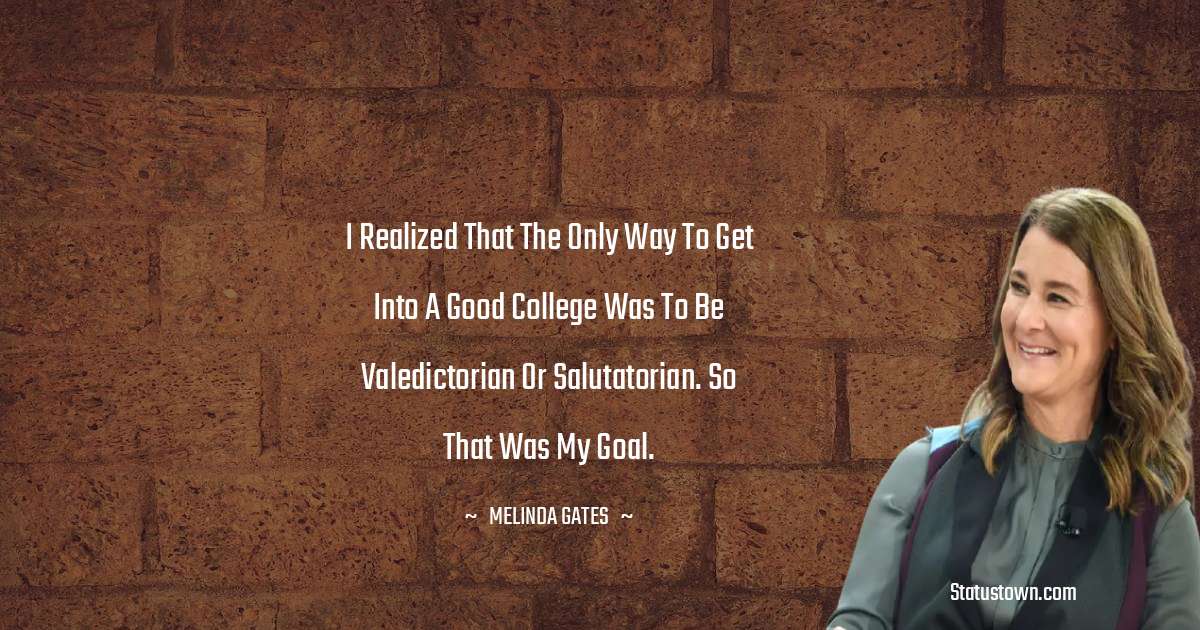
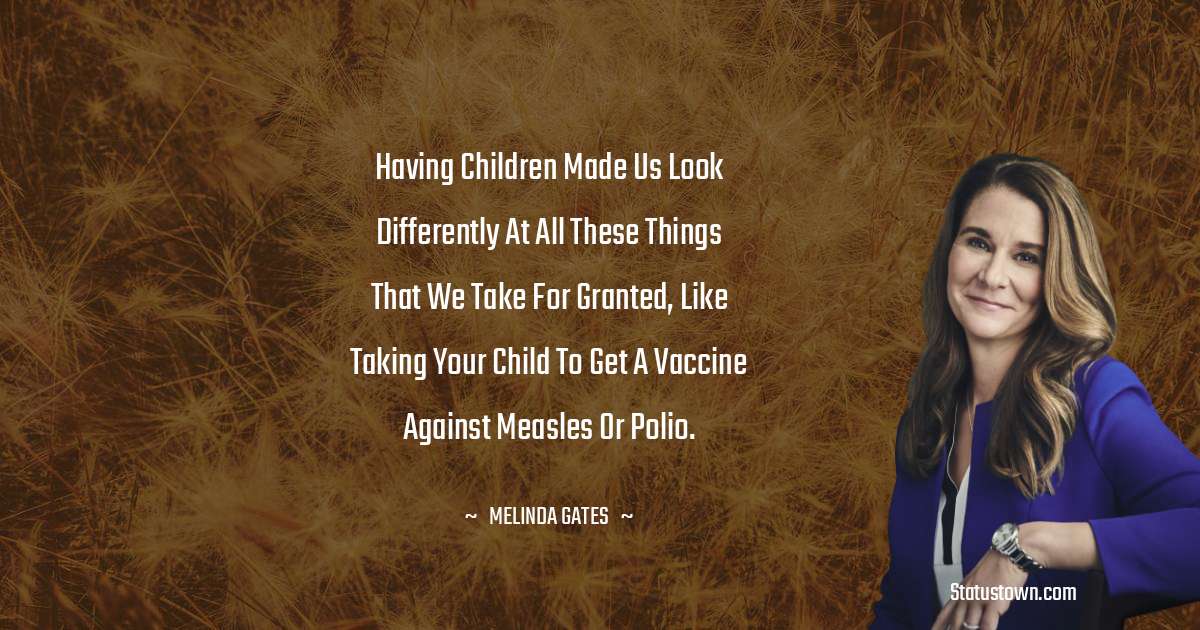
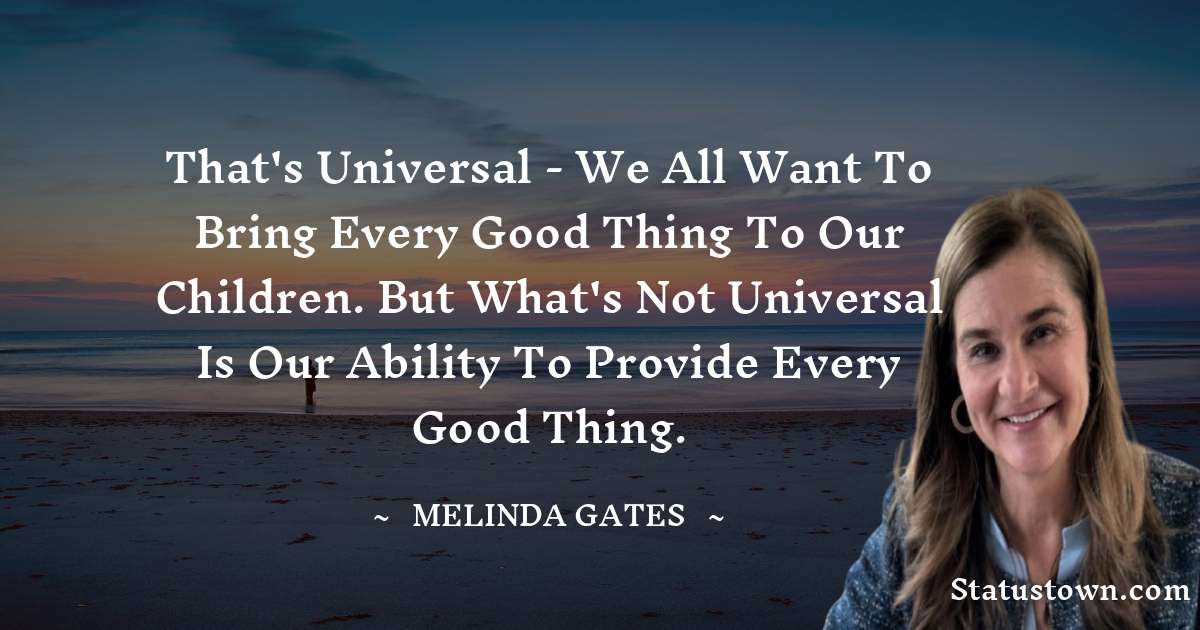
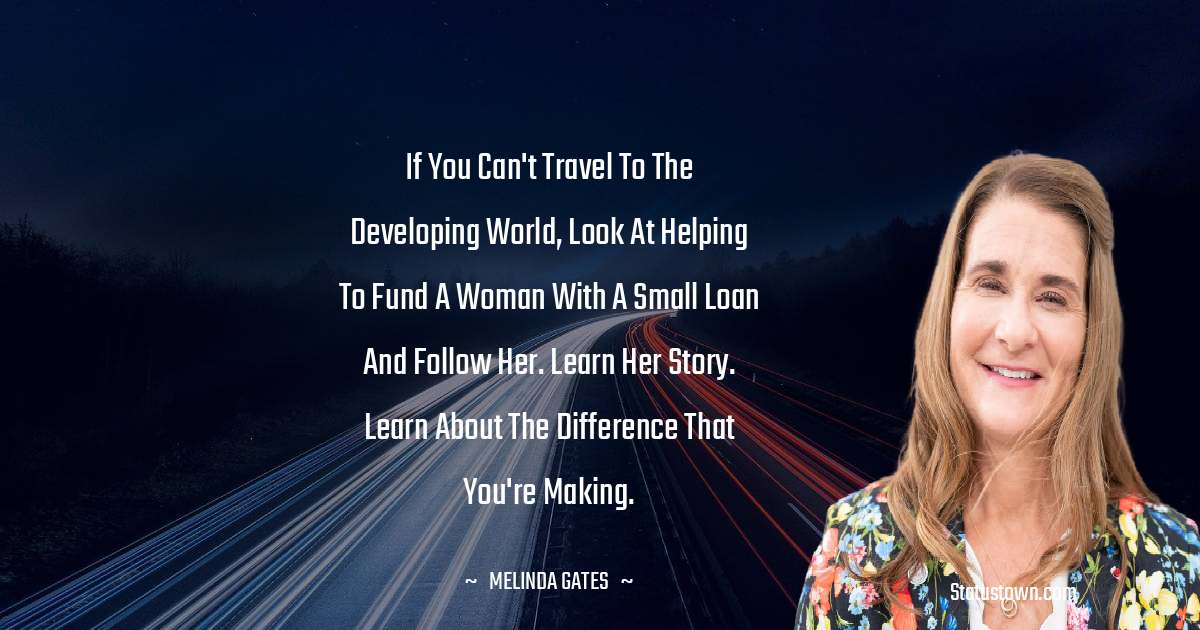
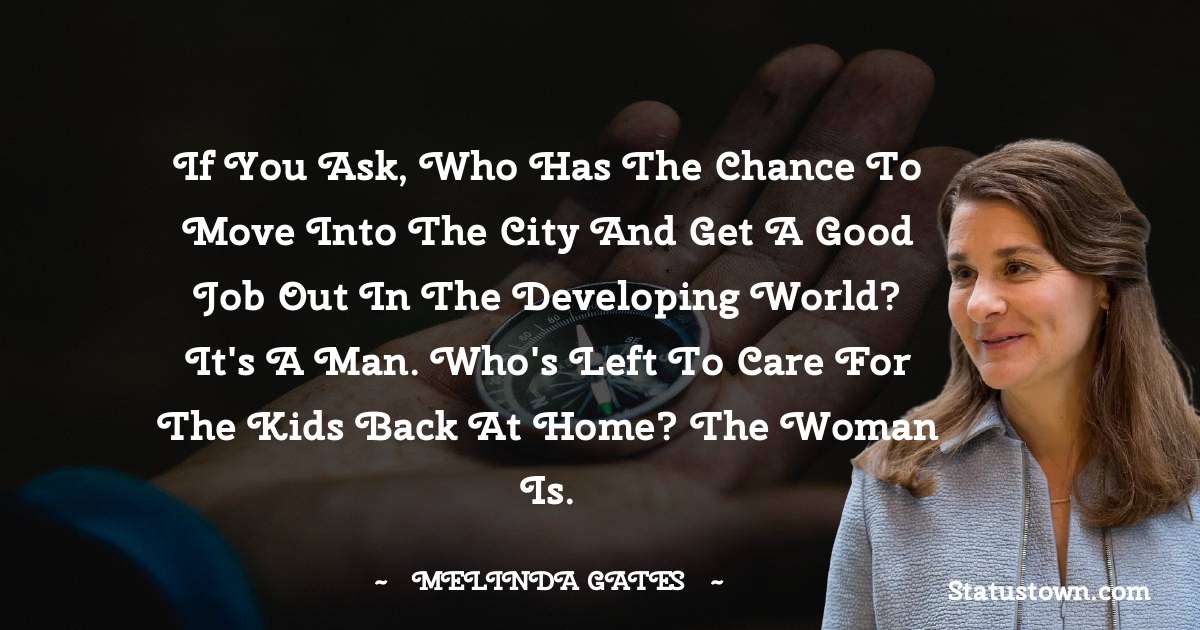
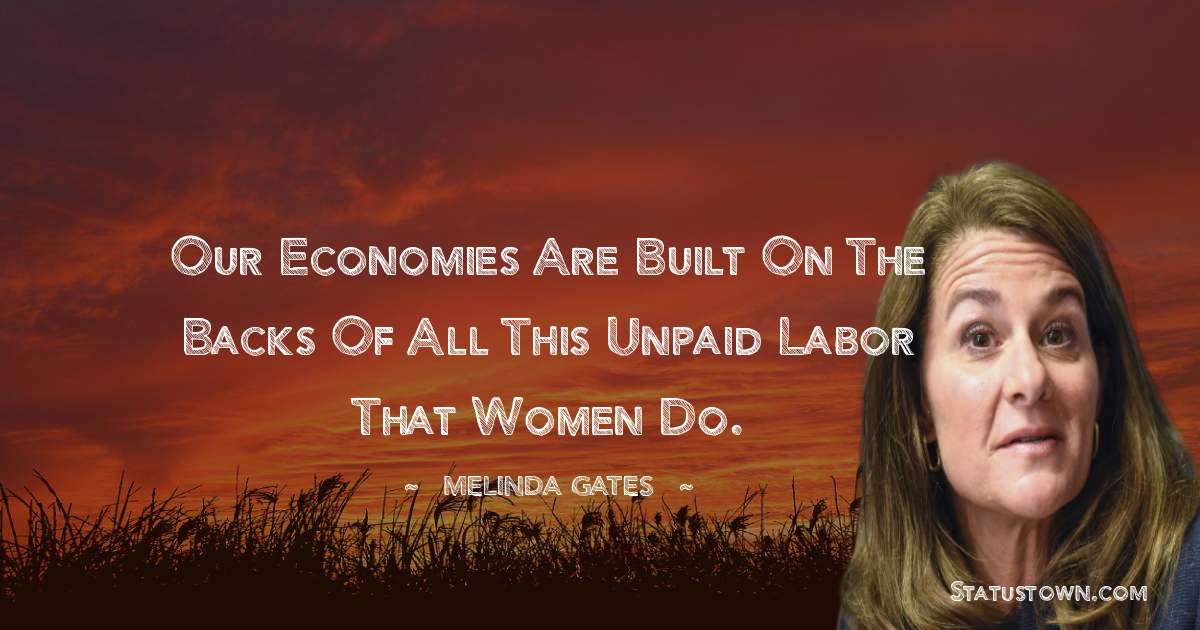
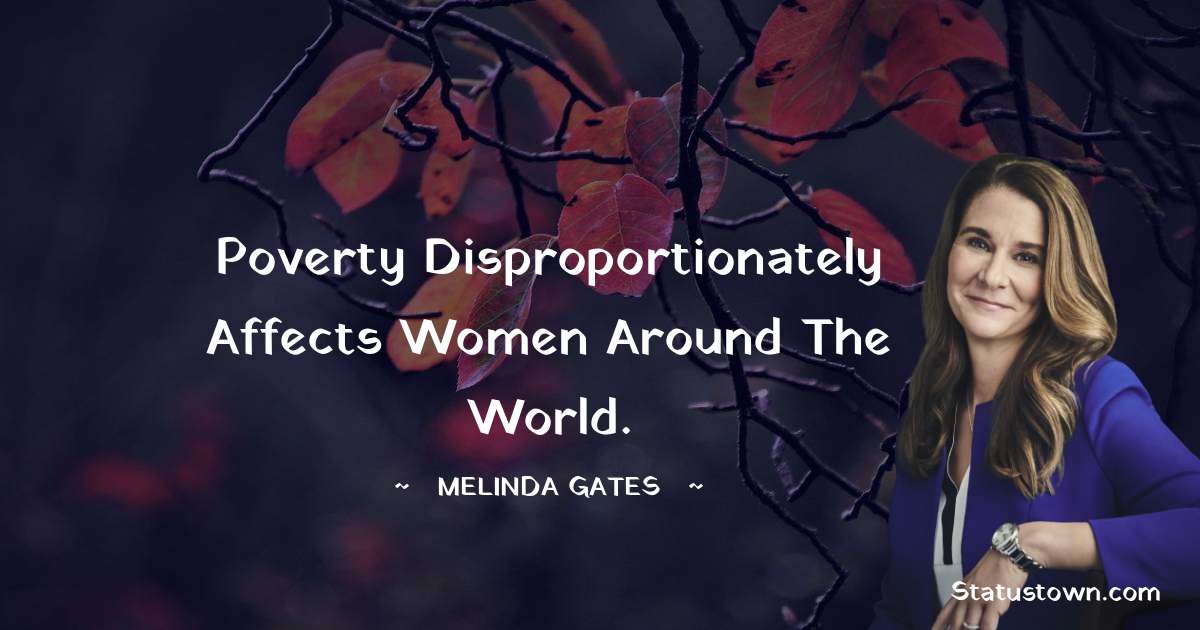


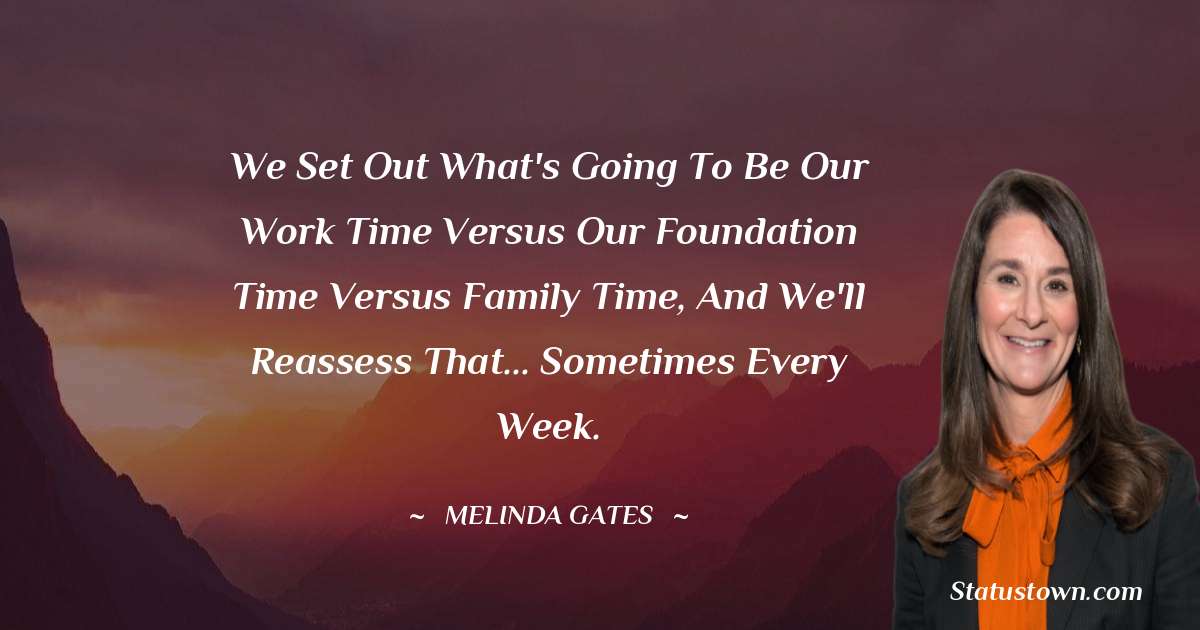
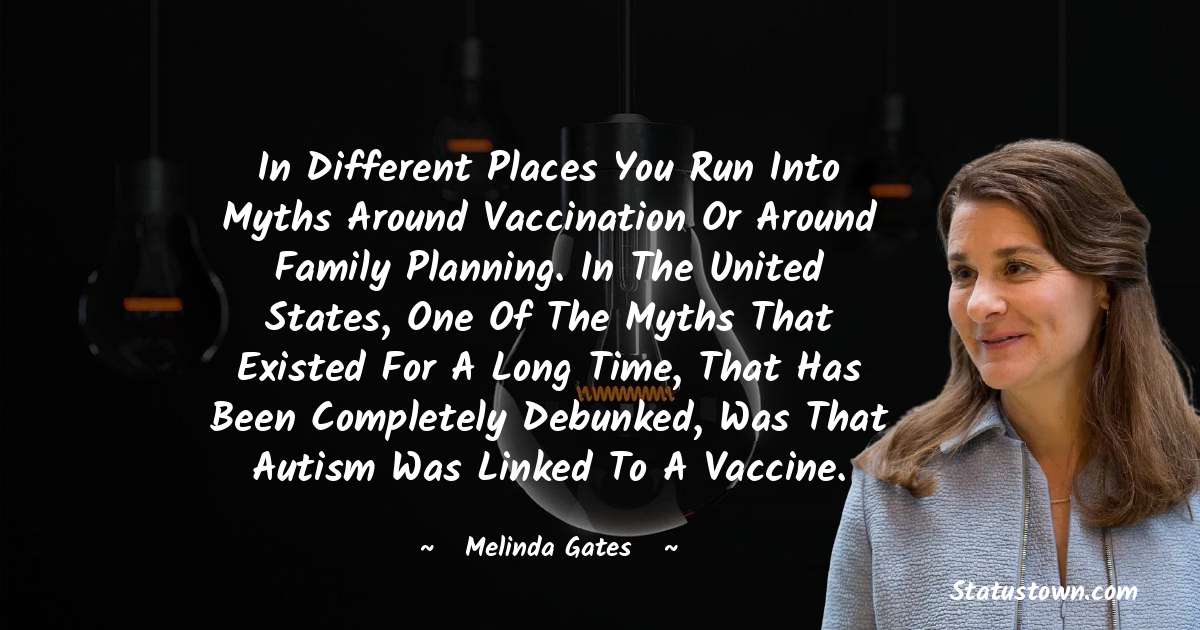
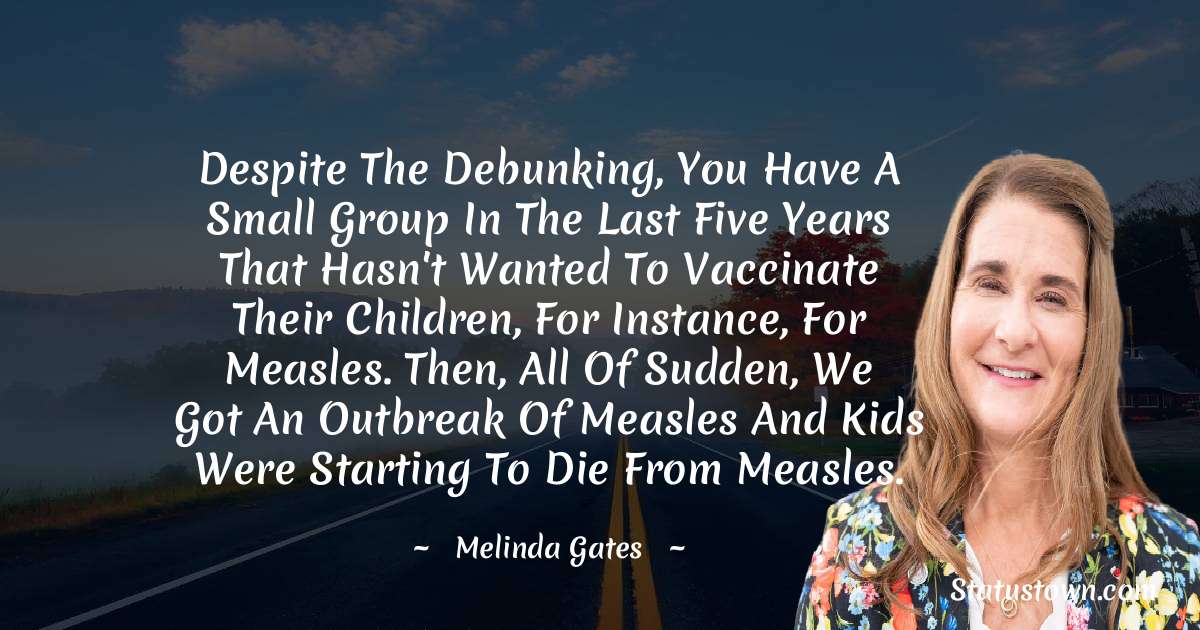



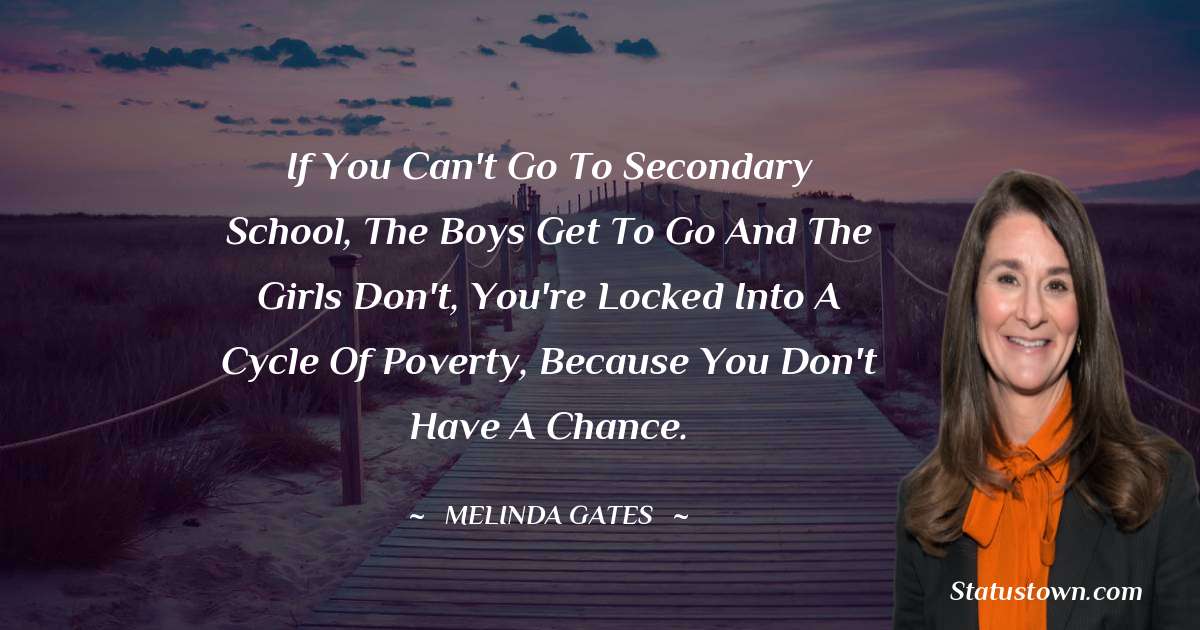
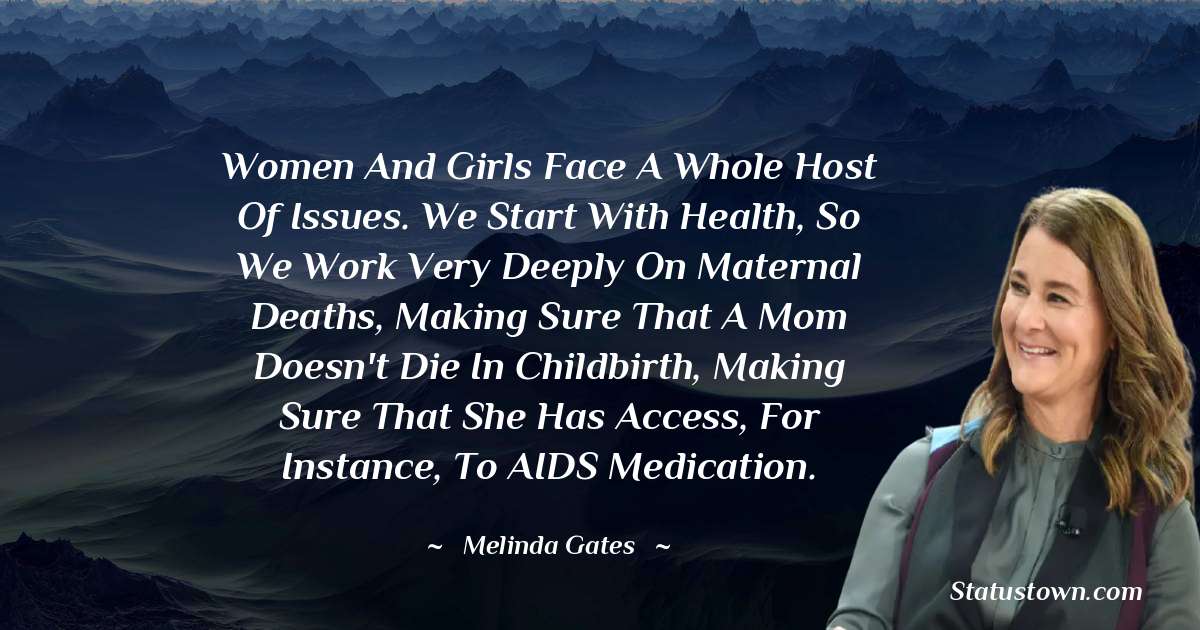
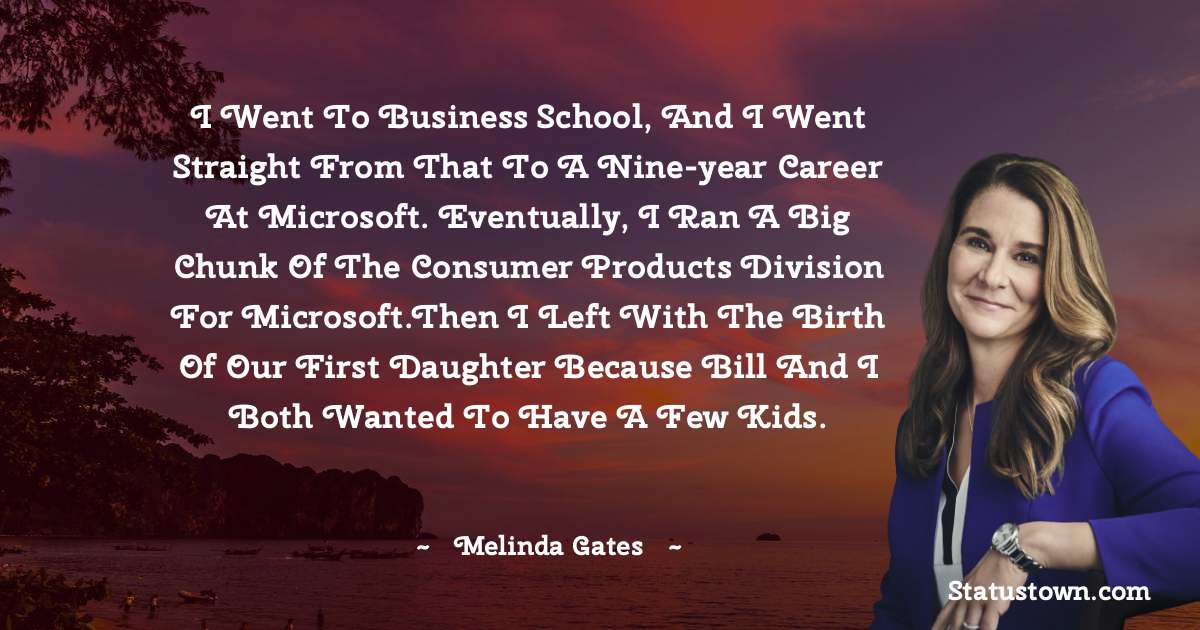
![[Bill Gates] wanted me to stay working at Microsoft, but I didn't think he could be CEO and we could have the family life that we both had growing up, which is what we envisioned. I knew I would go back to work at some point later to some profession. I just didn't know what.](https://statustown.com/wp-content/uploads/quotesimages/melinda-gates-6620.jpg)
![We [with Bill Gates] started to make decisions about what we'd invest in. Then I actually started traveling for the foundation. I've probably been to India now eight times at least and Africa numerous times.](https://statustown.com/wp-content/uploads/quotesimages/melinda-gates-6619.jpg)

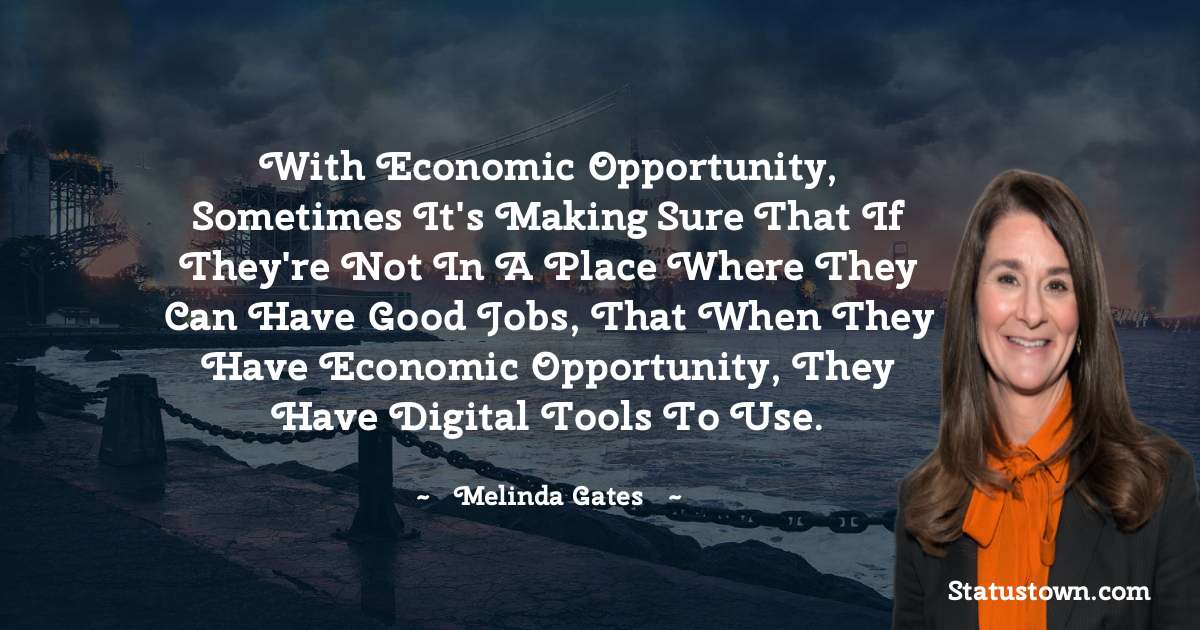

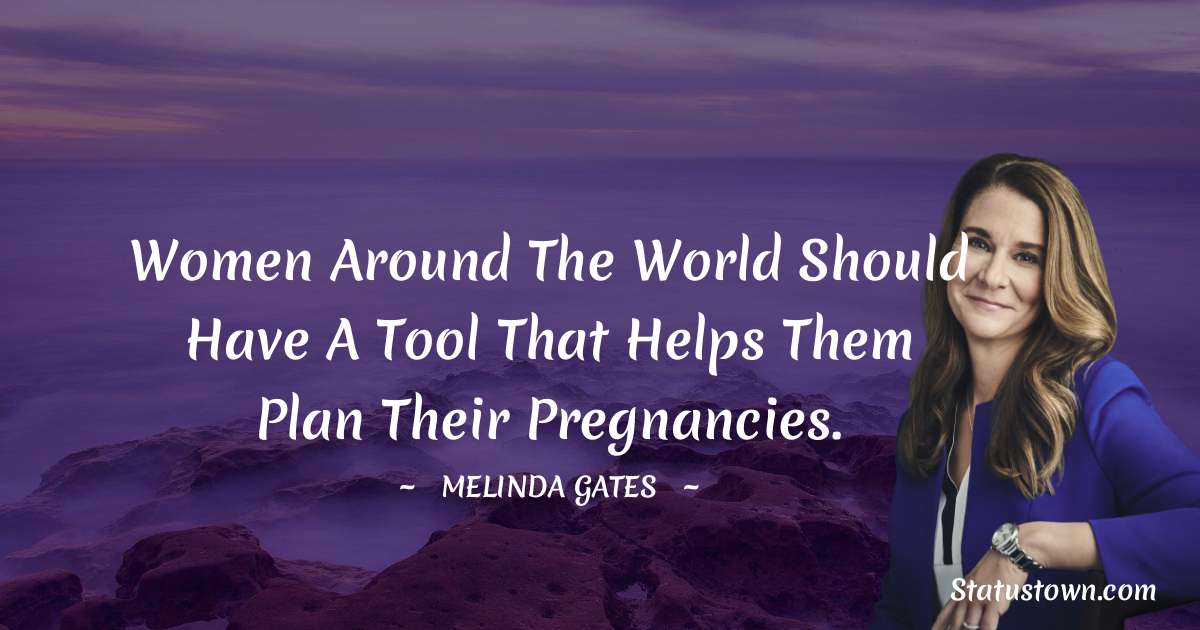


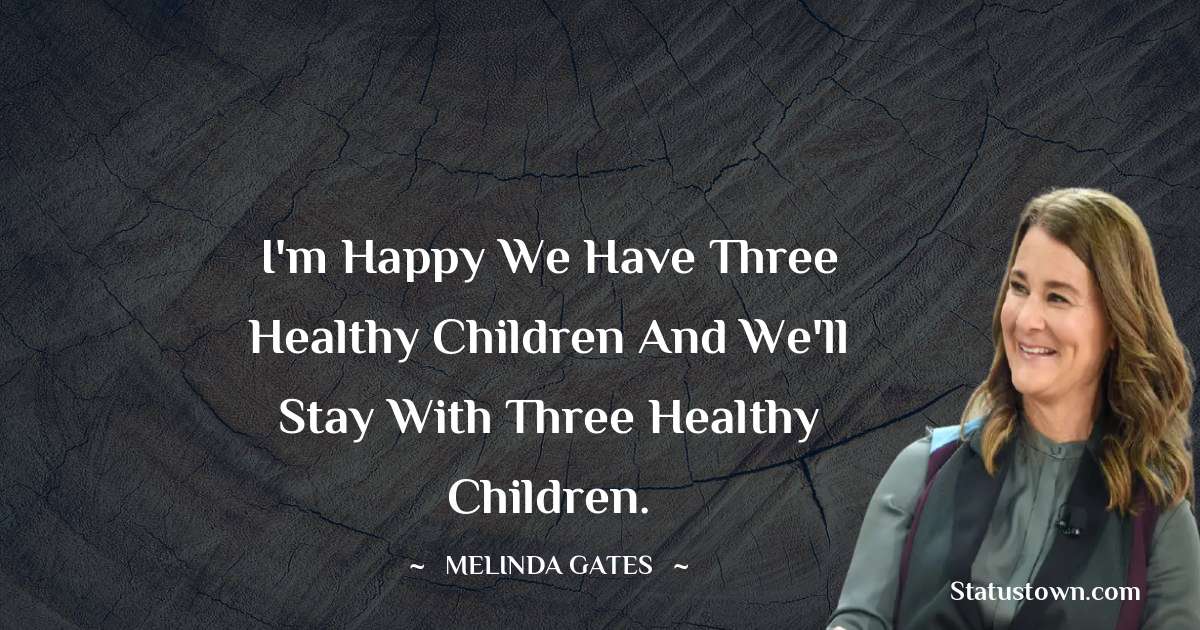
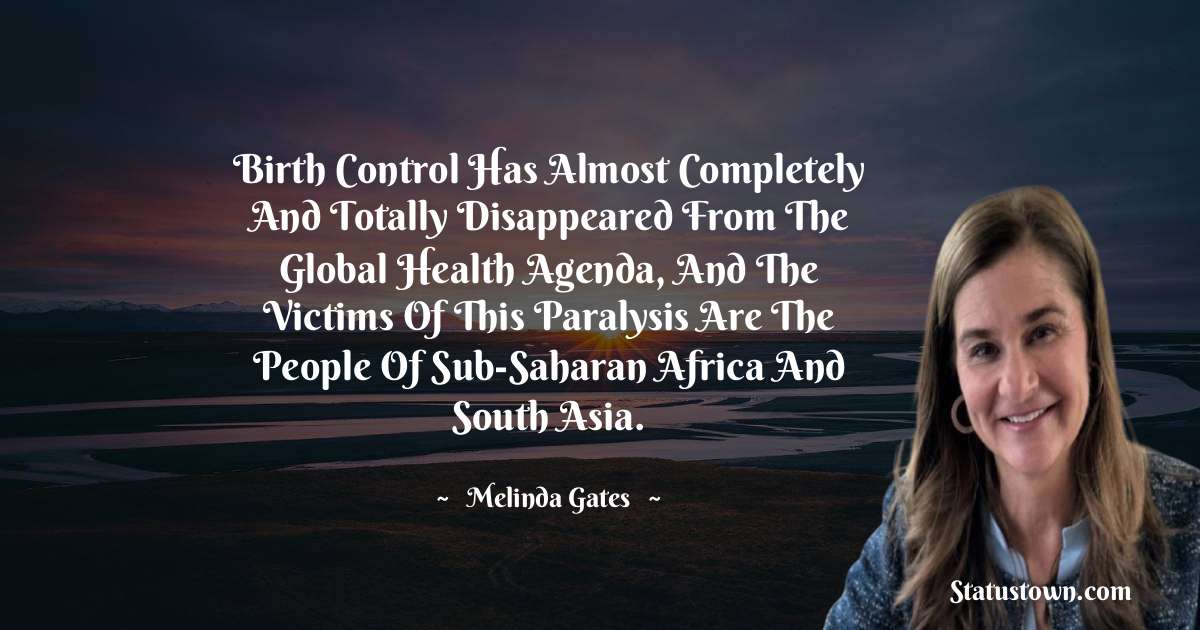

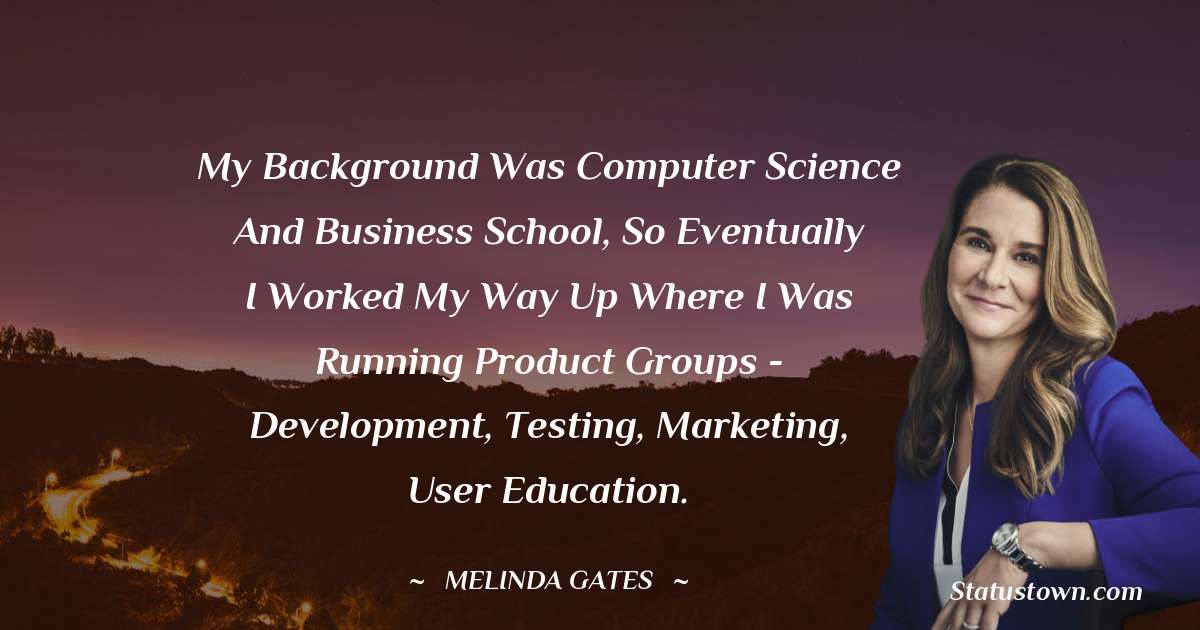
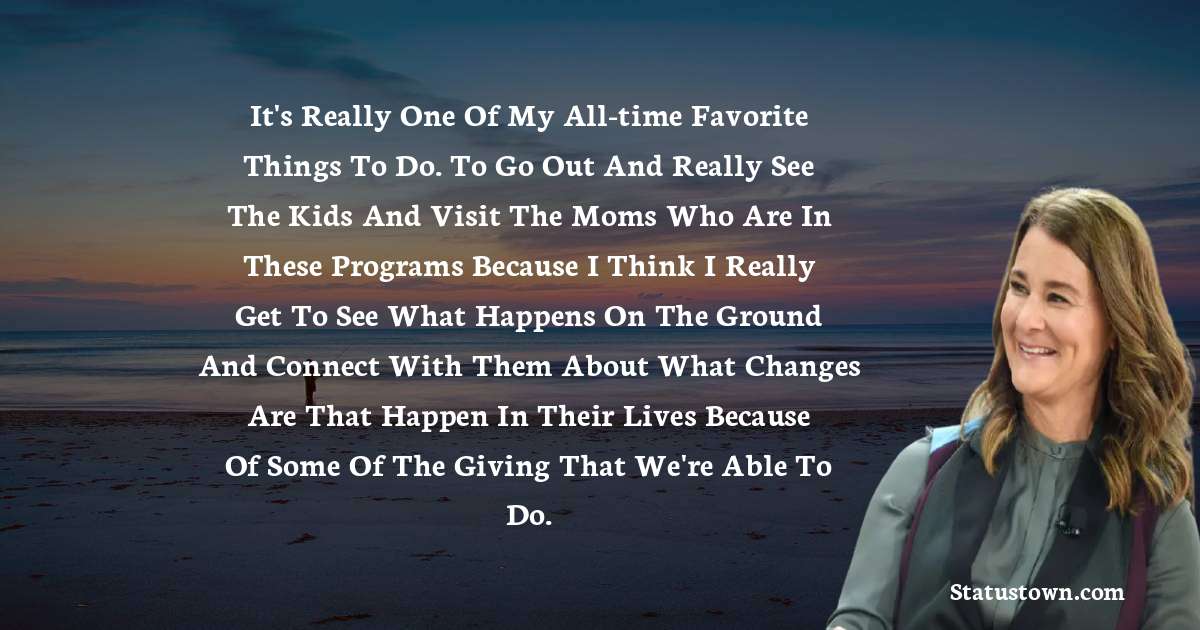


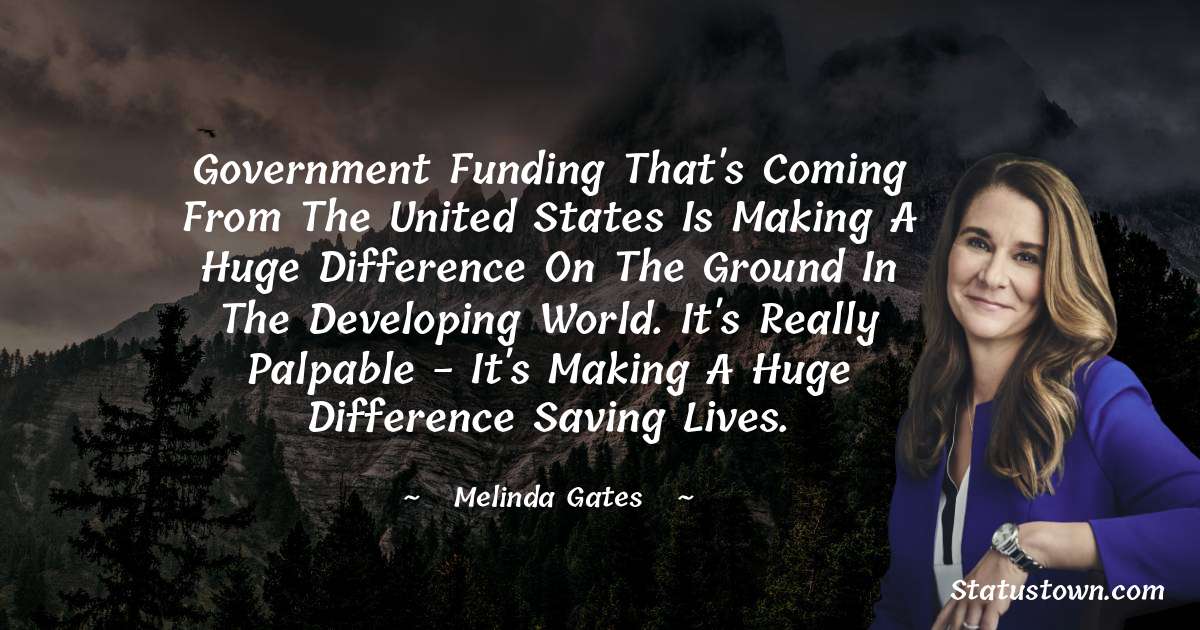
![The fact that 98 percent of women in [the U.S.] who are sexually experienced say they use birth control doesn't make sex any less sacred. It just means that they're getting to make choices about their lives.](https://statustown.com/wp-content/uploads/quotesimages/melinda-gates-6604.jpg)
